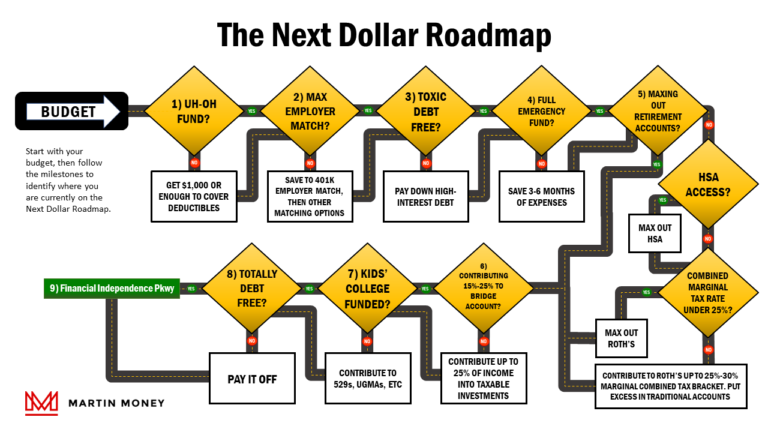Four Financial Benefits of Marriage
Although money is a poor motive for getting married, marriage produces several monetary benefits and efficiencies in areas like taxes, social security benefits, retirement saving, and insurance.
“If you marry a monkey for his wealth, the money goes, but the monkey remains as is.”
– Egyptian Proverb
Money is a poor motive for getting married, but even if you married for the right reasons, it never hurts to know how it benefits you financially.
With that in mind, we’ve assembled a list of common financial perks available to those who are married.
This is not an attempt to persuade you to tie the knot, even though we think marriage is awesome.
Instead, as usual, we hope it opens your eyes to benefits you aren’t currently taking full advantage of.
Taxes
To begin, if you’re married you may or may not be able to glean greater tax savings.
Since income taxes are actually a function of income, which can vary from spouse to spouse, it all depends on the math.
Generally, the greater the difference in income between spouses, the greater the tax benefit. This is because married couples receive a double helping of benefits like the standard deduction and tax bracket ranges.
For example, let’s assume John & Jane Smith are married and live off John’s annual income of $90,000. Jane does not work outside of the home.
When they file their taxes jointly, the Smiths will get a standard deduction of $27,700 leaving them with a taxable income of $62,300 which is in the 12% marginal tax bracket.
If John wasn’t married, his standard deduction would only be $13,850, leaving him with a taxable income of $76,150. As a single filer, this also exposes $31,425 of John’s income to the 22% tax bracket.
In summary, marriage saved the Smiths $4,804.50 in taxes. And that’s just for income.
Marriage also allows you to effectively double your capital gains exclusion for selling your primary home. Single filers receive a $250,000 deduction while married couples receive $500,000.
Finally, married couples enjoy double maximums for gift and estate tax exemptions.
Social Security
Perhaps the single largest income benefit from Uncle Sam for marriage is in social security.
If you are married, when you begin taking social security you can elect to take the calculated payment for yourself or half of your spouse’s benefit, whichever is greater.
This doesn’t hurt your spouse’s benefit at all, but they must have already filed for social security for you to receive the spousal benefit.
A secondary social security advantage is the survivor benefits.
If your spouse passes away but had a higher social security benefit than you, you can begin collecting their benefit instead of your own so you receive the higher of the two.
Finally, if you are divorced, you can claim spousal benefits from a previous marriage.
You must have been married for at least ten years and there are other restrictions, but this is a benefit many people don’t realize exists.
You do not need your ex-spouse’s permission to begin taking the spousal benefit, but they do have to claim their own benefits before you can begin drawing the spousal benefit for yourself.
Your filing has no impact on their own social security benefits.
Retirement Saving
There are several benefits marriage also provides for retirement saving and taking distributions from these accounts.
First, a non-working spouse can contribute to a Spousal IRA, assuming the working spouse has enough income to cover the contribution. Normally, they would need earned income to contribute to an IRA.
So, if you have a husband or wife who doesn’t earn income, you can still contribute to an IRA (Roth or Traditional) on their behalf.
Also, widows and widowers can treat inherited IRAs from their spouse as if it is their own.
If the deceased spouse had not started RMDs, the widowed spouse can even delay them until they reach their own RMD age, potentially allowing the account to grow even more before withdrawals begin.
If the deceased spouse had begun taking RMDs the widowed spouse will have to continue taking RMDs but can submit a revised schedule to the IRS based on their own life expectancy.
If you decide to roll an inherited spousal IRA into your own account, you’ll have to do so within 60 days of your spouse’s death.
Somehow this doesn’t seem like enough time to me, but try to keep it in mind should you have the unfortunate task of settling your deceased spouse’s estate one day.
Finally, spouses are automatically selected as the primary beneficiary of retirement plans by law. So, if you pass away and forgot to declare your husband or wife as your primary beneficiary, the law steps in on your behalf so your spouse receives the account.
Some custodians allow this beneficiary declaration to be altered manually if you desire to do so.
Insurance
Last, but not least, marriage provides some monetary benefits for insurance.
First, premiums for automobile, homeowner’s, umbrella, and long-term care are all typically cheaper for married individuals than for singles.
In some cases, this can be true for health insurance too, but it depends on the plans one has access to.
When we were first married and working with no kids, it was much cheaper for my wife and I to have our own insurance coverage because our employer plans subsidized so much of our premium.
Had we selected family coverage, our monthly health insurance costs would have been much higher.
Speaking of health insurance, one interesting wrinkle in tax law is that married couples can deduct health insurance premiums whereas unmarried partners cannot.
Any Drawbacks?
Well, I have to pick up my dirty laundry much more frequently, but other than that, not really.
If you or your spouse happens to suffer from a poor credit history it may limit your ability to secure loans from some institutions.
Overall, having at least one spouse with good credit is an opportunity to rehabilitate the credit of the other, so you could argue this is a net benefit.
Beyond that, the only financial drawback of marriage is learning how to manage a budget and goals together.
Navigating those choices is obviously more complex than when you’re single, but it will also make you a better communicator and, speaking personally, a better person.
So, there you have it.
Certainly not a substantial enough reason to take the plunge, but the monetary benefits of marriage are significant. Be sure to make the most of them.







